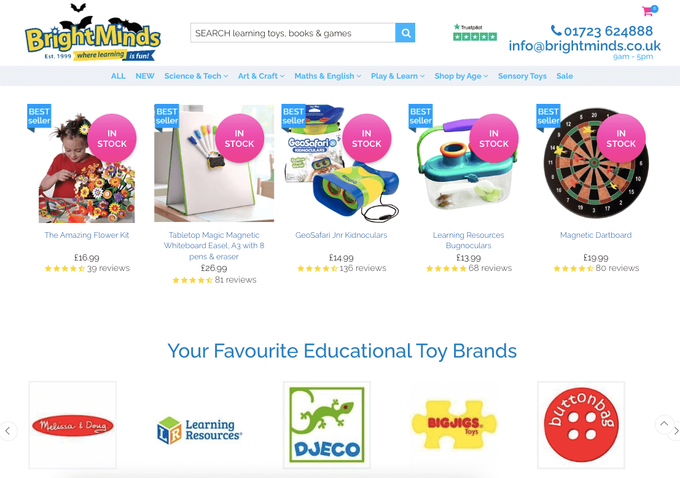ChatGPT and AI in eCommerce: Has the Hype Died Down?
Artificial intelligence continues to impact eCommerce: Uncover the hype, the reality, and how to leverage it for your business.
Updated February 3, 2026

AI Summary
When AI first emerged, it was seen as a potential disruptor across industries, and some even worried it was a threat to humankind. As we’ve come to use and work with it in our daily lives, we’ve recognized that AI, particularly ChatGPT, can significantly enhance customer experiences.
So, has the initial hype around AI in eCommerce died down or become something more substantial? As we look at the evolution of ChatGPT and AI in eCommerce, we’ll explore how it continues to drive better customer experiences and how we can harness its potential effectively.
The AI Evolution in eCommerce
The initial enthusiasm around AI in eCommerce was palpable. There were high expectations for AI’s potential to revolutionize the industry. And, yes, AI tools are changing the way we shop online. What started as basic chatbots has evolved into sophisticated tools for personalized interactions, thanks to AI and natural language processing.
Today, AI components like ChatGPT are common in many applications, particularly in platforms like Shopify, revolutionizing online shopping experiences. And this is just the start. With generative AI there's an opportunity to engage with people on a conversational level, offering them supported personalized experiences that enhance their shopping needs.
Better Customer Service Through Conversational Commerce
Chatbots, powered by conversational AI, can understand and respond to human interactions effectively. They mimic human-like conversations, learning from past interactions and predefined parameters. AI chatbots are capable of handling up to 80% of routine customer inquiries, providing real-time assistance and ensuring faster resolution of issues, especially during peak shopping seasons such as Black Friday and Cyber Monday
Here are four ways you can enhance customer service with AI:
- Personalized product recommendations: AI-driven chatbots on platforms like Shopify can suggest products based on customers’ preferences and past purchases.
- Order assistance: Businesses like Walmart and Whole Foods use AI chatbots for order-related inquiries, helping customers with their orders effectively.
- Product availability and site navigation: AI chatbots can assist customers with product availability and in-store navigation, streamlining the shopping process.
- Seamless shopping experience: Integrating AI chatbots into messaging apps like WhatsApp allows customers to browse products and make purchases directly within the chat interface.
What's more, AI-powered apps and chatbots can play a key role in logistics and delivery services, rounding off the customer experience. They assist in tracking orders, providing real-time updates to customers, and ensuring efficient and timely delivery.
Enhanced Personalization With Data-Driven Insights
Customers want personalized shopping experiences. AI and machine learning come into play here, using vast amounts of customer data to provide deeper insights. This leads to more accurate and personalized customer journeys. The customer data trains an algorithm that continues to learn and improve the accuracy of recommendations as it receives new data.
These recommendations are not static but evolve with the customer’s changing preferences and shopping behavior.
Educational toy store BrightMinds uses personalization based on demographics and history to tailor the shopping experience to different audiences, resulting in a 25% conversion rate.
Whole Foods offers a recipe generator through Facebook Messenger, providing personalized recipes based on customer preferences and purchase history. This dynamic personalization makes shopping more enjoyable and relevant for customers.
AI-driven chatbots on platforms like Shopify further enhance personalization. They assist customers in finding suitable products based on their preferences, making the shopping journey more tailored and enjoyable. These chatbots learn from each interaction, continuously improving their ability to assist customers effectively.
Content Marketing at Scale
AI tools automate tasks like creating product descriptions and blog posts, saving businesses valuable time and resources.
For instance, many eCommerce businesses use AI tools like ChatGPT to enhance their product descriptions. This not only ensures high-quality content but also maintains a consistent brand voice across all products.
User-generated content, such as product reviews, can also be moderated by AI. Platforms like Fera integrate ChatGPT for this purpose, ensuring a consistent brand tone across all customer interactions.
A New Era of eCommerce with AI
AI and ChatGPT have really changed how we do online shopping. They’ve made customer support better, made content creation easier, and improved the shopping experience for users.
But this is just the start. As AI gets better, we can expect even more cool stuff to come. This will make shopping online even better for both businesses and shoppers.
The key takeaway? Embrace AI in your eCommerce business. It’s not just about keeping up with the trends—it’s about leveraging these powerful tools to provide better services, create more engaging customer experiences, and ultimately, drive your business forward in this new era of eCommerce.





